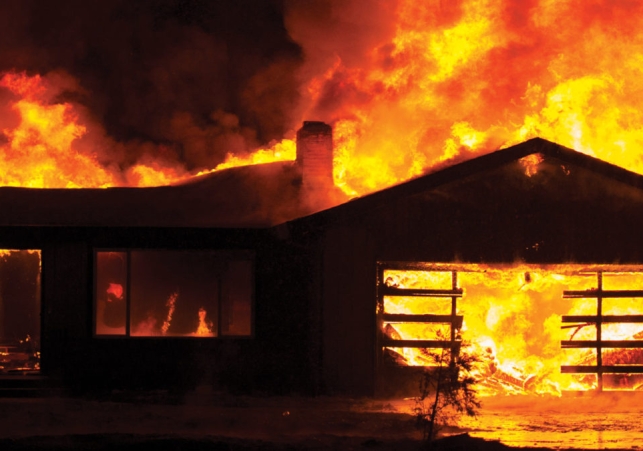Fire Safety and Home Insurance Premiums

Keeping your home safe from fires is not only important for the well-being of you and your family, but it can also impact your home insurance premiums. Insurance companies consider several factors when determining the cost of your premium, including the risk of fire damage to your home. By taking steps to improve fire safety in your home, you can potentially lower your insurance premiums and protect your property and loved ones.
One of the first steps you can take to improve fire safety in your home is to install smoke alarms on every level of your home and inside each bedroom. Smoke alarms are essential for early detection of a fire and can save lives by providing an early warning to occupants. Make sure to test your smoke alarms regularly and replace the batteries at least once per year to ensure they are in working order.
Another crucial step in improving fire safety is to have a fire escape plan in place. Make sure everyone in your household knows how to safely exit the home in the event of a fire and designate a meeting spot outside. Practice your fire escape plan regularly so that everyone is familiar with the process and can evacuate quickly in an emergency.
In addition to smoke alarms and a fire escape plan, there are several other measures you can take to reduce the risk of fire damage to your home. Keep flammable materials, such as paper, clothing, and furniture, away from heat sources, such as stoves and fireplaces. Make sure to properly maintain your appliances and electrical systems to prevent electrical fires. Never leave cooking unattended, and keep a fire extinguisher in an easily accessible location in the kitchen.
Improving the fire safety of your home not only protects your property and loved ones but can also have a positive impact on your home insurance premiums. Insurance companies consider the risk of fire damage when calculating your premium, and taking steps to reduce this risk can result in lower premiums.
For example, installing smoke alarms can demonstrate to your insurance company that you are taking proactive steps to protect your home from fire damage. Some insurance companies may offer discounts on premiums for homes with smoke alarms installed, as they are proven to reduce the risk of fire-related injuries and fatalities.
Having a fire escape plan in place can also help lower your insurance premiums, as it shows that you are prepared in the event of a fire emergency. Insurance companies may view homes with fire escape plans more favorably and offer discounts to policyholders who have taken steps to ensure the safety of their household.
In addition to improving fire safety in your home, there are other factors that can impact your home insurance premiums. Insurance companies consider the age and condition of your home, as well as the presence of safety features such as fire alarms and sprinkler systems. You may be able to lower your premium by updating your home's electrical and plumbing systems, installing a security system, or making other improvements to reduce the risk of damage.
It's important to regularly review your home insurance policy with your insurance agent to ensure you are adequately covered and taking advantage of any available discounts. By improving fire safety in your home and taking proactive measures to reduce the risk of damage, you can potentially lower your insurance premiums and protect your property and loved ones.
In conclusion, fire safety is essential for protecting your home and family from the devastating effects of a fire. By installing smoke alarms, having a fire escape plan, and taking other preventative measures, you can reduce the risk of fire damage and potentially lower your home insurance premiums. Talk to your insurance agent about ways you can improve fire safety in your home and save money on your insurance policy. Remember, it's better to be safe than sorry when it comes to protecting your home from fires.
